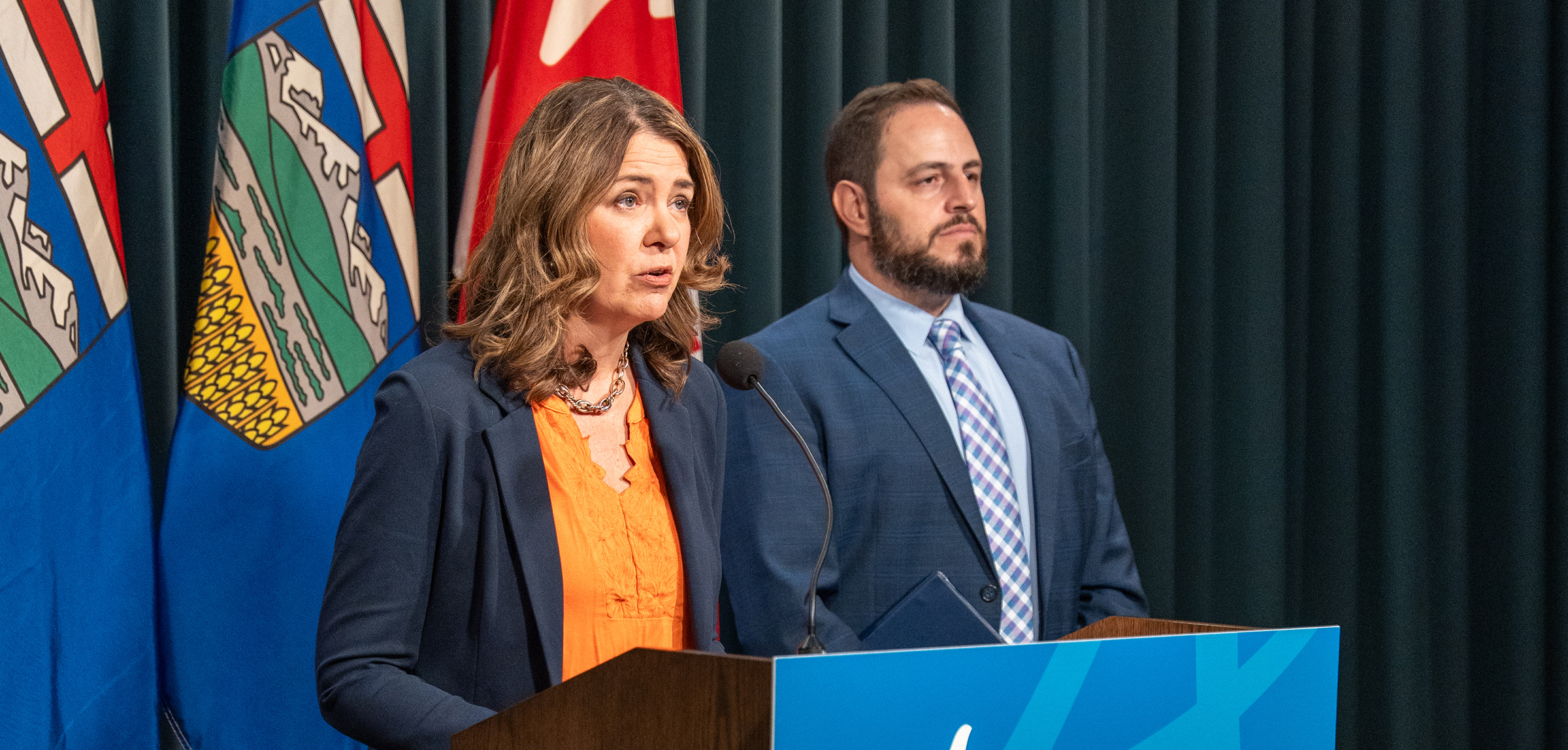Alberta’s minister of Education and Childcare has been handed a wide-ranging mandate that includes directives on fast-tracking teacher certification, ensuring implementation of Bill 27, and advancing trades education and training.
In a mandate letter dated Sept. 22, Premier Danielle Smith acknowledged work undertaken by the ministry under Minister Demetrios Nicolaides before outlining its next priorities. Smith highlighted the Schools Now program—which accelerated 33 school projects—and the new standards for school library materials, which were revised after pushback this fall, as examples of the ministry’s recent accomplishments.
Looking ahead, Smith’s letter outlines 15 directives for the ministry. These include the following areas of focus: develop supports for students pursuing careers in areas facing labour shortages; advance vocational education, training and careers in the skilled trades; support career and education planning; support student mental health; support students with complex needs; strengthen parental input and ensure the funding model continues to promote parental choice in education; ensure implementation of Bill 27; and introduce an abbreviated path for individuals with degrees, diplomas or trade certifications to become certificated teachers.
Alberta Teachers’ Association (ATA) president Jason Schilling said the mandate letter contains several promising elements, including commitments to enhance student mental health supports, address complex learning needs and construct CTS labs. At the same time, the ATA has raised concerns with some of the directives.
Consultation and caution urged
Schilling urged the government to proceed with caution with its next steps, particularly when considering any abbreviated form of certification.
“Teaching is a rigorous profession requiring expertise and specialized skills beyond just subject knowledge,” he said. “We need to ensure our future teachers have the tools they need to succeed in classrooms, while upholding the quality of education Alberta students deserve.”
What an abbreviated certification process might look like remains unclear and, in response to the mandate letter, Nicolaides said options are still being explored.
“Hopefully in the very near future, we’ll have some more information to announce. But obviously any individual would need to have some additional training to get up to speed, to understand the curriculum, the curriculum outcomes, to understand the teaching quality standard and standards that we have for teachers,” Nicolaides said.
Another directive drawing criticism relates to the implementation of Bill 27. Smith’s letter instructs Nicolaides to use “all available legal and constitutional means” to enforce Bill 27 (the Education Amendment Act), which came into effect on Sept. 1, 2025. The amendments to the Education Act pertain to parental opt-in for sexual education classes; ministerial approval for resources and presentations on gender identity, sexual orientation or human sexuality; and parental consent and notification for name and pronoun changes in school.
While not confirming whether the notwithstanding clause would be invoked in implementing the amendments, Nicolaides acknowledged that “all options are on the table.”
“As the mandate letter directs, we want to make sure that it is fully implemented,” he said.
This directive comes a few weeks after two advocacy groups, Egale Canada and Skipping Stone, filed a constitutional challenge against the province on Bill 27, arguing that it represents a direct constitutional attack on the rights of gender-diverse youth. As the challenge works its way through the legal system, Schilling emphasizes the responsibility of teachers to keep students safe.
“Parental rights need to be balanced with teachers’ responsibility to ensure every student feels affirmed and supported in their learning environment,” Schilling said.
For his part, Nicolaides said he anticipates further legislation over the next two years to fulfill the mandate letter but did not provide specifics.
In responding to the mandate, Schilling urged the government to collaborate with teachers before implementing any program or policy changes that would affect Alberta’s education system.
“The government needs to engage in meaningful dialogue with the profession and educational partners to implement the priorities identified in the mandate,” he said. “Alberta’s students deserve a future shaped by thoughtful, research-informed policy, and together we can find solutions.”
The ATA’s full statement in response to the mandate letter is available here:
https://abteach.cc/ATAresponseletter.
Read the full mandate letter to the minister here:
https://abteach.cc/ABmandateletter.



